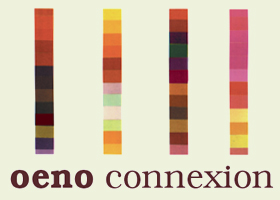Domaine de L’Escattes
François Robelin
Histoire
Création du domaine :1997 (Année d’acquisition du domaine)
Superficie des vignes : 24ha
Culture : Agriculture Biologique
Certification : AB
Le Domaine de L’Escattes se situe dans une petite vallée, juste entre Nîmes et Montpellier. La propriété datant du 17ème siècle se trouvait abandonnée depuis des années. Elle fut rachetée par les parents de François en 1977. À l’époque, ils vinifiaient la moitié de la récolte et vendaient l’autre moitié à une cave coopérative. Depuis 1990, ils cultivent les raisins en lutte raisonnée et vinifient l’ensemble de la récolte.
Le domaine, dont le terroir est majoritairement argilo calcaire, bénéficie d’un microclimat frais grâce à l’influence des sources et des eaux souterraines. Les Romains qui s’étaient installés dans cette région, l’ont baptisée « Escattes », du latin « Escatarire », signifiant « jaillir ».
François travaillait comme homme d’affaires. Cependant, aller au bureau en costume-cravate n’étant pas la vie dont il rêve, il se remet en question et décide de plonger dans le monde du vin.
Après des études d’œnologie à Macon, il fait un apprentissage de deux ans auprès de Philippe Pacalet, durant laquelle il découvre une méthode de vinification sans égrappage ni sulfites. Il retourne au domaine familial et commence à cultiver les vignes et vinifier des vins auprès de son père pendant un an. À partir de cette époque, le domaine se convertit progressivement à l’agriculture biologique et cesse l’utilisation des produits chimiques. La fermentation alcoolique se déroule également avec des levures naturelles.
François reprend le domaine en 2009 et le domaine obtient la certification AB en 2013.
Les moutons pâturent les vignes au moment de la poussé de l’herbe, et les labours se font progressivement à l’aide d’un cheval.

Region
Languedoc
Lire la suite
Domaine de L’Escattes
François Robelin
Story
Establishment :1997 (Year of domain purchase)
Surface : 24ha
Culture : Organic Farming
Certification : AB
The Domaine de L’Escattes is in a small valley, just between Nimes and Montpellier. The 17th century property had been abandoned for years. It was bought back by François’ parents in 1977. At the time, they vinified half of the harvest and sold the other half to a cooperative winery. Since 1990, they have been growing the grapes using sustainable agriculture and vinifying the entire harvest.
The estate, with a predominantly clay-limestone terroir, benefits from a cool microclimate due to the influence of springs and underground waters. The Romans who settled in this region named it « Escattes », from the Latin « Escatarire », meaning « to gush forth ».
François used to work as a businessman. However, going to the office in a suit and tie was not the life he dreamed of, so he questioned himself and decided to dive into the world of wine. After studying oenology in Macon, he did a two-year apprenticeship with Philippe Pacalet, during which he discovered a winemaking method without destemming or sulfites. He returned to the family estate and began cultivating the vines and making wines with his father for a year. From that time on, the estate gradually converted to organic agriculture and stopped using chemicals. The alcoholic fermentation also takes place with natural yeasts.
François took over the estate in 2009 and the estate obtained organic certification in 2013.
Sheep graze the vines when the grass is growing, and plowing is gradually done with the help of a horse.

Region
Languedoc
Read more
Domaine de L’Escattes
François Robelin
ドメーヌ・ドゥ・レスカット
Story
設立年:1977年(ドメーヌ購入の年)
畑面積:24 ha
栽培:ビオ栽培
認証:AB
ニームとモンペリエ間にある小さな谷にあるドメーヌ・ドゥ・レスカット。放置されていた17世紀からあるドメーヌを1977年にフランソワの両親が購入した。当時は収穫の半分を醸造、残りの半分を協同組合へ売っていたが、10年後からは24haのブドウ畑をリュットーレゾネ方式で栽培し、すべて自分たちで醸造し始めた。
ドメーヌは湧き水や地下水の影響により、この地域として涼しい微気候の恩恵を受けている。ローマ人はこの地を開拓し、ラテン語で「噴出する」という意味の「Escatarire」から「Escattes」と名付けた。
息子であるフランソワは、元々エリートサラリーマンだった。しかし毎日スーツで出勤する自分の人生に疑問を抱き、ワイン業界へ飛び込むことを決意。マコンで醸造学を学んだのち、フィリップ・パカレの元で2年間修行。除梗なし・全房での醸造、亜硫酸ゼロの醸造法に興味を持ち、父親の元で1年間ドメーヌで栽培と醸造を手伝う。この時期からドメーヌでは徐々に有機栽培へ転向し、化学物質も散布しなくなった。アルコール発酵も天然酵母で行い始める。2009年にフランソワがドメーヌを引き継ぐ。そして2013年よりABラベル認証。
畑に草が生えている時期は羊たちを放牧させており、耕作も徐々に馬の力を利用したものへと移行予定。土壌の多くは粘土石灰質。

Region
ラングドック地方
Read more







